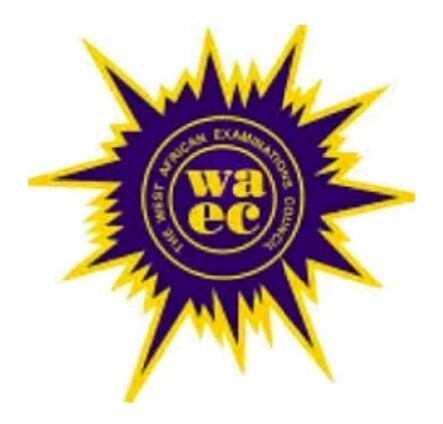Studying Health Education is crucial for anyone preparing for the West African Examination Council (WAEC) Health Education exam.
The syllabus provided by WAEC serves as a comprehensive guide, outlining the aims, objectives, and topics to be covered in the examination.
About WAEC Syllabus for Health Education 2024/2025
In this blog post, we will simplify the WAEC Health Education syllabus and provide an overview of the exam format.
By understanding the syllabus, you’ll be better equipped to prepare effectively and achieve success in your Health Education exam.
Objectives:
The primary objectives of the WAEC Health Education syllabus are as follows:
- Acquire fundamental knowledge about the human body and develop necessary skills for maintaining good health.
- Promote positive health practices in both school and community settings.
- Identify and understand the ecological relationship between humans and their environment to prevent diseases.
- Draw inferences from practical experiences related to health and make observations based on those experiences.
- Develop the readiness required for professional training in health-related careers.
Exam Format
The Health Education exam consists of three papers: Paper 1, Paper 2, and Paper 3. Here’s an overview of each paper:
Paper 1:
- Multiple-choice objective questions.
- Fifty questions to be answered within one hour.
- Total marks: 50.
Paper 2:
- Divided into two sections: Section A and Section B.
- Section A: Six short-structured questions to be answered.
- Section B: Three essay questions, out of which candidates must answer two.
- Total marks: Section A (30 marks) and Section B (40 marks).
- Total duration: One hour.
Paper 3:
- Practical test for school candidates and an alternative test of practical work for private candidates.
- Total marks: 80.
- Total duration: One hour and forty-five minutes.
Simplified Syllabus
- History and Development of Health Education:
- Meaning and different settings for Health Education.
- Understanding health promotion.
- Human Anatomy and Physiology:
- Cells and tissues of the human body.
- Sense organs and their structure and functions.
- Various body systems, their structure, functions, and related diseases/disorders.
- Personal Health:
- Importance of physical health.
- Personal hygiene and its promotion and maintenance.
- Eye defects and their corrections, auditory defects, and care of the eye, ear, and skin.
- Dental health education and common dental diseases.
- Community Health:
- Community health services and providers.
- School health programs and components.
- Family health, including maternal and child health.
- Epidemiology and vital statistics.
- Environmental Health:
- Criteria for good housing, water supply, waste disposal, and pollution.
- Industrial occupation and occupational hazards.
- Pests and vectors control.
- Nutrition and Food:
- Classes, sources, and functions of food nutrients.
- Balanced/adequate diets and nutritional problems.
- Food hygiene, preservation, and storage.
- Safety Education and First Aid:
- First aid principles and specific emergency conditions.
- Disaster types and relief activities.
- Drug, alcohol, and tobacco education.
- Communicable and Non-Communicable Diseases:
- Meaning and classification of diseases.
- Common communicable diseases and their causes.
- Non-communicable diseases and their types.
- Family Life and Human Sexuality Education:
- Human reproduction, reproductive organs, conception, and childbirth.
- Diseases and disorders of the reproductive system.
- Human sexuality education, family roles, and challenges.
- Emotional and Social Health:
- Personality traits, problems, and mental health.
- Consumer health education and laws protecting consumers.
FAQs
What are the main topics covered in the WAEC Health Education syllabus for 2024/2025?
The WAEC Health Education syllabus for 2024/2025 covers a wide range of topics essential for students. Key areas include:
- Personal, community, and environmental health.
- Nutrition, food safety, and hygiene.
- Disease prevention and control.
- Human anatomy and physiology.
- Health education methods and communication.
- Sexual and reproductive health.
How can I access the WAEC syllabus for Health Education for the 2024/2025 session?
You can access the WAEC Health Education syllabus for 2024/2025 by visiting the official WAEC website or through WAEC-approved learning centers. Many educational platforms also provide downloadable PDF versions of the syllabus for free. Additionally, school guidance counselors may have physical copies available for students.
Is the WAEC Health Education syllabus for 2024/2025 different from previous years?
While the core topics remain largely the same, the WAEC Health Education syllabus may undergo minor updates each year. These updates could include new guidelines, revised curriculum objectives, or the inclusion of contemporary health issues. It is important to check for the latest version to ensure you’re studying the correct material.
Conclusion
To excel in the WAEC Health Education exam, it is vital to familiarize yourself with the syllabus provided by WAEC.
This blog post has simplified the syllabus into various sections, highlighting the topics you need to cover.
By following the syllabus and recommended textbooks, practicing past papers, and utilizing the necessary exam materials, you’ll be well-prepared to tackle the exam successfully.
Remember, effective exam preparation is like farming with the right tools; it ensures productivity and positive outcomes. Start your preparation early and use the syllabus as your roadmap to success. Good luck!






